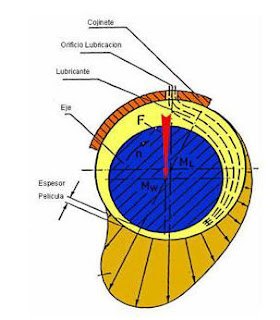Use semi or fully synthetic 10W/40 or 15W/50 motorcycle engine oil which meets specification API SH (or higher) and JASO MA, such as Mobil 1 Racing 4T
or
API service classification : SE, SF, SH grade Viscosity : SAE10W-30 (Use appropriate type of oil with viscosity satisfying the atmospheric temperature in your riding area based on the table shown on the right side.)
What is JASO and API standars? In this web (http://www.oilspecifications.org) you can see what is this standard and meaning of each oil. But If I have to make some resume:
- JASO MA: Measurerment of friction for wet clutch
- API: Measurement of chemical compatibility and deposits.
The second value is the Xw Y, and this is the important for your engine, the first number is the cold viscosity measurement Xw(40ºC - 104ºF) and the other number Y is the hot viscosity measurement (100ºC-212ºC).

And the numbers in the tables is single grade, but with 2 numbers you can see the behaviour of multigrade.


The reality of oils is if you move one grade, move all curve, the viscosity in cold of 10w-50 not is the same that 10w-30
For example, several oils 10w40:
Hot (100ºC-212ºC)
- Single grade Castrol r40, viscosity 100ºC 14.5 cSt
- Multigrade Castrol Power1 , viscosity 100ºC 13.5cSt,
- Multigrade Castrol Power Racing , viscosity 100ºC 13.0cSt,
- Multigrade Motul 300v, viscosity 100ºC 13.1cSt,
- Multigrade Motul 7100, viscosity 100ºC 13.5cSt,
Cold (40ºC - 104ºF)
- Single grade Castrol r40, tables dont show, more and less 120-180cSt
- Multigrade Castrol Power1, viscosity 40ºC 66cSt
- Multigrade Castrol Power Racing, viscosity 40ºC 83cSt,
- Multigrade Motul 300v, viscosity 40ºC 82.1cSt,
- Multigrade Motul 7100, viscosity 140ºC 88.8cSt,
The R40 is single grade due to it is the racing oil, and Castrol suppose that this oil only works with hot engine.
When you select the engine oil you must select the the similar grades, due to the oil viscosity depends of two parts in the engine.
- Oil pressure in the engine. The presure provide oil flow to different parts of the engine. The kinematic viscosity provide number of Reynolds and this low, increase the lost pressure in the internal piping of oil. Therefore the pressure in camshaft bearings is less and the film of protection is less, contrary to of reason, because we forget that the first step is carry the oil to the bearing.
- Oil film in the bearing, the behaviour is contrary that the first point, more viscosity, more thickness oil film. (It is not all right, if we increase the viscosity increase the minimun expsor and the oil could not enter in the gap bearing,)
Therefore, if you want select the correct oil, you must select grade oil that mark engine manufacturer. May be if you use the motor bike in winter and mountain road select the low grade and if you use the motorbike in city and summer, up the grades.
Anyway, is very important warm the engine before to ride, the oil begin to work from 40ºC to 50ºC, but the ideal point is close to 100ºC.
If I have the same grades but different oil trademark? Which is better?
The oil besides of the viscosity have other values, and the more important is the Flashpoint. Flashpoint is the second more important data, (to me). You change the oil each kms due to the oils burn and degrade into the engine. If the you increase the flashpoint, the oil keep like oil more time and not ashes, (used oil is black due to ashes).
In Racing oils you can see that this point is very high
- Single grade Castrol r40, flashpoint 220ºC (racing oil)
- Multigrade Castrol Power1, flashpoint 207ºC (Street oil)
- Multigrade Castrol Power Racing, flashpoint 209ºC (Racing/Street oil)
- Multigrade Motul 300v, flashpoint 250ºC (Racing oil)
- Multigrade Motul 7100, flashpoint 236ºC (Racing/Street oil)
A lof of people say me that the temepratures into the engine is not high, but example:
Exhaust Valve is steel,and the valve clearance is 0.2mm, and when reach work temperature this gap is 0mm, dilation constant in steel is 1.2e-5 by ºC. un one valve with lenght 120mm to grow 0.2mm you must heat to 140ºC plus room temperature, therefore 160ºC (320ºF).
This is if we not take the values such as the rotary axis of camshaft and the base ons the camhead with heat also it have lenght changes.


Este comentario ha sido eliminado por el autor.
ResponderEliminarGreat post on bike engine oil types! 👍 It’s really helpful to understand the difference between mineral, semi-synthetic, and fully synthetic oils before choosing the right one. Using the correct bike engine oil improves performance, mileage, and engine life. Thanks for sharing such useful information!
ResponderEliminar